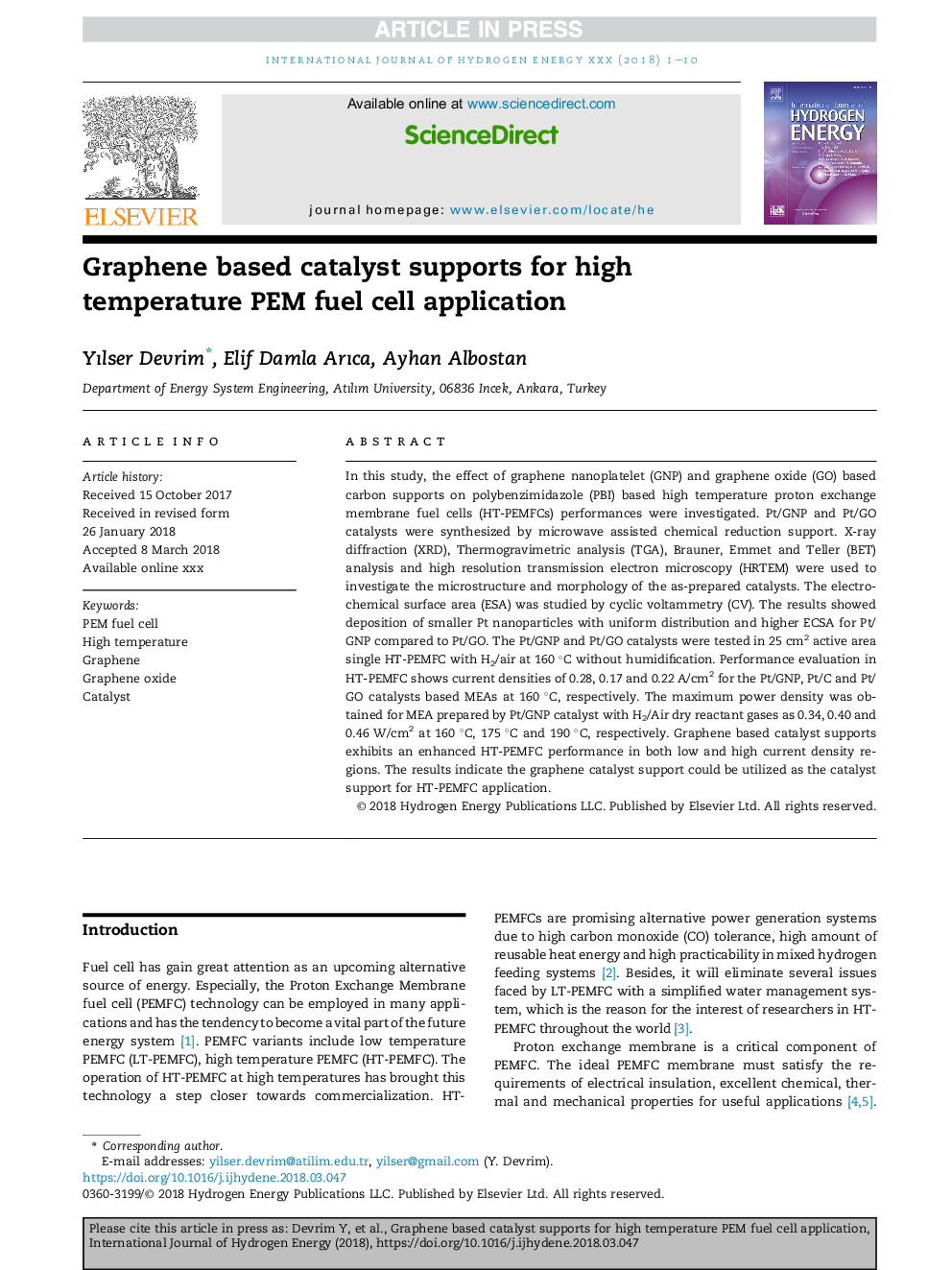| Article ID | Journal | Published Year | Pages | File Type |
|---|---|---|---|---|
| 7705605 | International Journal of Hydrogen Energy | 2018 | 10 Pages |
Abstract
In this study, the effect of graphene nanoplatelet (GNP) and graphene oxide (GO) based carbon supports on polybenzimidazole (PBI) based high temperature proton exchange membrane fuel cells (HT-PEMFCs) performances were investigated. Pt/GNP and Pt/GO catalysts were synthesized by microwave assisted chemical reduction support. X-ray diffraction (XRD), Thermogravimetric analysis (TGA), Brauner, Emmet and Teller (BET) analysis and high resolution transmission electron microscopy (HRTEM) were used to investigate the microstructure and morphology of the as-prepared catalysts. The electrochemical surface area (ESA) was studied by cyclic voltammetry (CV). The results showed deposition of smaller Pt nanoparticles with uniform distribution and higher ECSA for Pt/GNP compared to Pt/GO. The Pt/GNP and Pt/GO catalysts were tested in 25 cm2 active area single HT-PEMFC with H2/air at 160 °C without humidification. Performance evaluation in HT-PEMFC shows current densities of 0.28, 0.17 and 0.22 A/cm2 for the Pt/GNP, Pt/C and Pt/GO catalysts based MEAs at 160 °C, respectively. The maximum power density was obtained for MEA prepared by Pt/GNP catalyst with H2/Air dry reactant gases as 0.34, 0.40 and 0.46 W/cm2 at 160 °C, 175 °C and 190 °C, respectively. Graphene based catalyst supports exhibits an enhanced HT-PEMFC performance in both low and high current density regions. The results indicate the graphene catalyst support could be utilized as the catalyst support for HT-PEMFC application.
Related Topics
Physical Sciences and Engineering
Chemistry
Electrochemistry
Authors
Yılser Devrim, Elif Damla Arıca, Ayhan Albostan,
